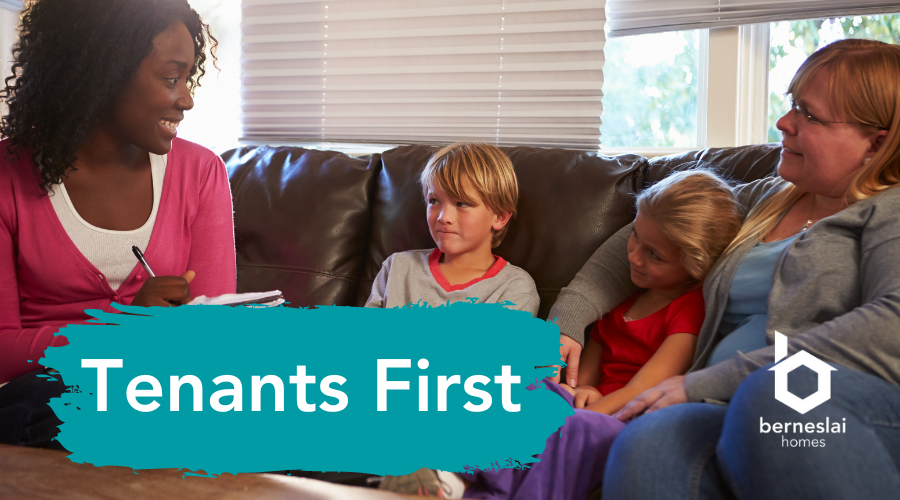More information about your rent
When do I pay my rent?
You must pay rent from the first day of your tenancy. Rent becomes due every Monday, to cover the previous week. It’s charged over 48 weeks (sometimes 49 depending on the number of Mondays in a year).
You can choose to pay your rent every week, every two weeks, or every four weeks. If you pay monthly, your payment will be for the two previous weeks and the next two following weeks.
There are four weeks when we don’t charge rent to your account. These are called non-chargeable weeks and they are at the beginning of April, August bank holiday, Christmas and New Year.
Non-chargeable rent weeks for 2025-26 are:
- Week 1 – week commencing 7 April 2025
- Week 22 – week commencing 1 September 2025
- Week 38 – week commencing 22 December 2025
- Week 39 – week commencing 29 December 2025
To keep your rent up to date, you should always pay it in the week it is due. To help you keep a record of your payments, you can download a Rent Payment Record Card using the link below.
What's included in my rent?
We charge you a total weekly rent for the property you live in. This is made up of your basic rent plus any additional charges:

Service charges
Some of our properties have extra services provided such as cleaning of communal areas, lighting of communal areas and grounds maintenance.
Heating and hot water charges
If you have communal heating you will be responsible for paying the costs for the energy you use. We use different charging methods depending upon the scheme and how we measure usage. A range of payment options are provided.
Water charges
Some tenants in our older persons’ schemes pay water rates with their rent. We pass this payment onto the water authority.Frequently asked questions about rent
The government sets out how social rents should be worked out. This is called ‘formulae rent’ and is for the property, it doesn’t include any service charges.
The formula is based on:
- The value of the property as at 1999 valuation levels.
- The number of bedrooms.
- Average national rents
- Average weekly earnings within South Yorkshire (set by government)
There is flexibility for rents to be set up to 5% above the formulae rent.
Rents are reviewed every April. We give a minimum notice period of four weeks of any changes. You’ll be served a rent increase notice that will tell you what your current rent is and how much it will be changing to.
For 2025/2026 the rents increase by 2.7% which is the consumer price index (CPI)+ 1%.
The CPI figure used is the figure from September of the year before the increase takes place.
You can appeal by:
Contacting the Income Team
Phoning 01226 787878
Writing to us at Berneslai Homes Income Team, PO Box 627, Barnsley, S70 9FZ.
Your appeal must be against the way we’ve calculated your rent and not, for example, about any repair work or dispute about benefits. If you appeal, you must carry on paying your rent while we look into your appeal. If you win your appeal, we’ll return any rent you’ve overpaid since the date of your appeal.
If we don’t agree with your appeal, we’ll ask the District Valuation Officer to review the rent we charge. However, this valuation may be higher and we would then have to increase your rent further.
When you move out of a Berneslai Homes property, the rent you’ve been paying has been charged weekly in arrears. This means you’ve been paying for living in the property the previous week. If you end your tenancy but leave rent outstanding, you’re still responsible for paying the debt.
If you're a current tenant, it's important to talk to us as soon as possible if you're struggling to pay your rent. We can look at your circumstances and work with you to find solutions. We're here to help.
At Berneslai Homes, previous tenancy arrears are taken seriously. Former tenancy arrears will not be written off and will need to be paid for. Even if they are not actively pursued, they will be kept on record and while the debt remains outstanding it will affect your eligibility to be rehoused in another council tenancy.
If you owe us any rent when your tenancy ends, we’ll contact you by letter, phone, or email or may visit your home. We’ll ask you to clear your account or agree to a suitable repayment arrangement.
If you don’t leave a forwarding address and we have the details, we may contact family members or your employer.
If you don’t pay the debt in a reasonable time, there are a number of actions we can take:
- If you’ve moved to another council tenancy, we can transfer the debt.
- We may ask a debt collection agency to collect the debt.
- We may seek a court order against you. The options include a money judgement order, an attachment of earnings, or a charge against a property you own.
Legal action will cost you and affect your credit rating with catalogue / hire purchase companies.

